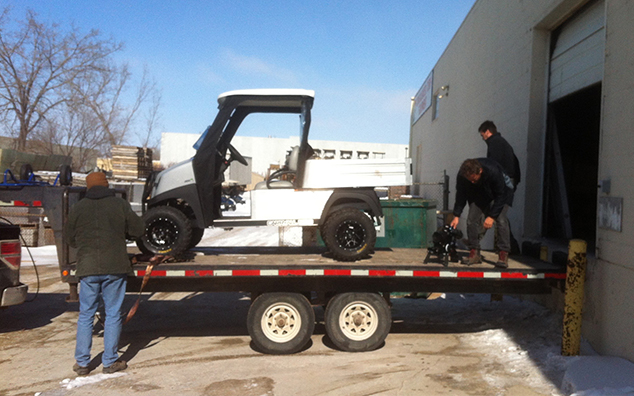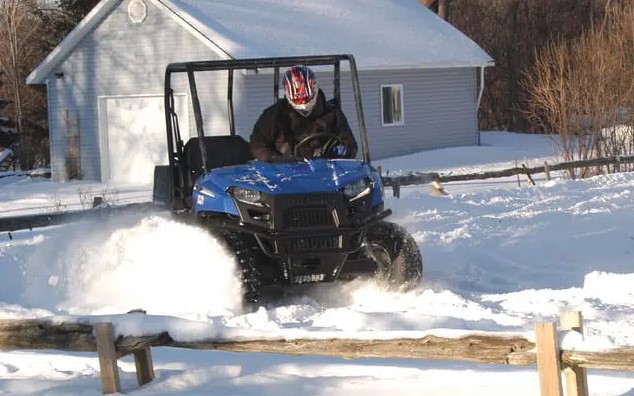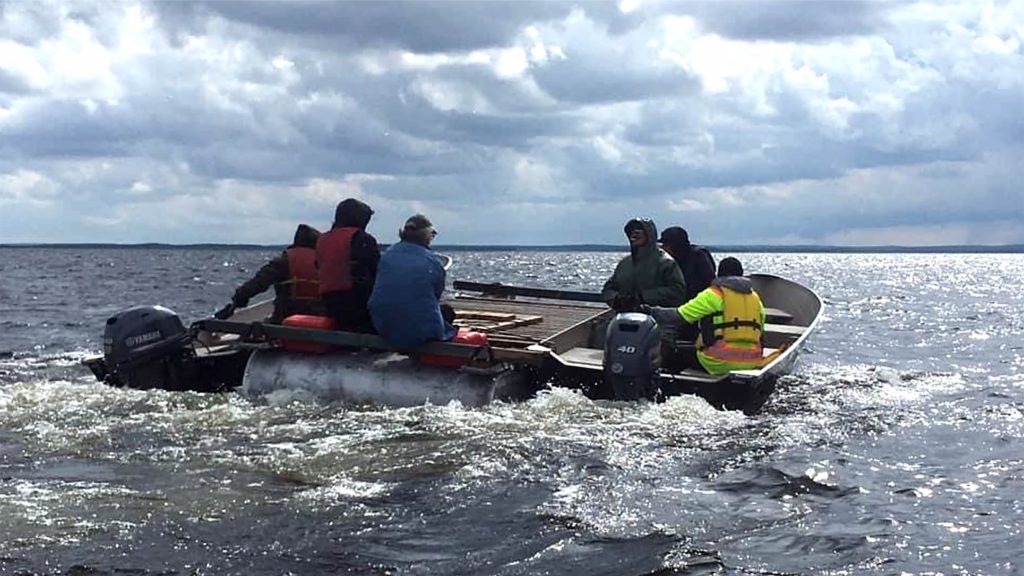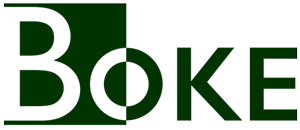At Boke, we have only just begun to try to tackle transportation. We’re working on:
- using lake and river routes for freight transportation
- electrification of local land transportation
- electrification of water transportation
- community ownership and local jobs in transportation
Electrification of Local Land Transportation
In 2015 Aki asked us to research and purchase an off-road electric runabout for the Meechim Farm project in Garden Hill First Nation. A summary of our report on the the state of off-road vehicles at that time is available here.
Side-by-side electric vehicles—with the Polaris Ranger EV the leading contender in this vehicle category—are a mature, commercially-available technology that are safer and able to carry heavier loads than ATVs.
Vehicle electrification has, of course, made a lot of progress since 2015. Perhaps the biggest advance that will be relevant for local transportation in remote communities is Ford’s electric F150, due for release in 2022. Other possibilities coming online include electric vans and small buses that will be supported by EV Charger Installation.
For remote communities with abundant renewable electricity, electric vehicle deployment makes sense now. For diesel-dependent communities, this will only make sense as they switch away from diesel to renewables.


Using Lake and River Routes for Freight Transportation
Many remote communities are located on large, navigable lakes, and are connected to extensive river networks. We’re working on alternative freight transportation using water routes. While water-based freight transportation obviously isn’t viable for all remote communities, we think it can be more widespread than it is now. One small example of what we’ve been working on lately is working with Northlands Dënesųłiné First Nation in the summer of 2020 to create and test a prototype barge for wood transportation across Lac Brochet.

A PowerPoint slide presentation of this initiative is available here.
